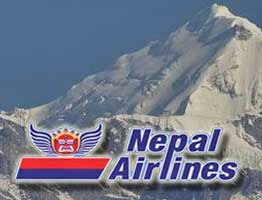Nepal’s aviation on a wing and a prayer
Kathmandu, September 7
Nepal’s plan to get its aviation sector removed early from the global shame list received another setback after the United Nations aviation agency found no change in the country’s three-year-old status as far as air accident investigation is concerned.
International Civil Aviation Organisation has red-flagged country’s aviation sector in 2013, citing non-compliance of ICAO protocols in eight critical elements, including the aircraft accident investigation.
In its updated safety audit report, the status of effective implementation of ICAO protocols stands at a pathetic 20 per cent as compared to the global average of 54 per cent.
The 2013 audit also found the implementation at the same level to designate Nepal’s aviation with significant safety concerns, leading to the European Union’s blacklisting of Nepali airlines in 2014.
The latest ICAO’s finding clearly shows that the senior officials at the Ministry of Culture, Tourism and Civil Aviation, which is solely responsible for aircraft accident investigation in Nepal, have been taking country’s civil aviation for a ride, while globe-trotting with no accompanying obligations or guilt, Ashok Chandra Pokharel, former board director at Nepal Airlines, said.
He added that at least four accidents involving commercial air transport that have occurred this year, resulting in deaths of five flight crew members and 25 passengers, were a grim reminder that serious deficiencies continue to stalk Nepali aviation.
“Besides, the repetitive nature of the accidents raises troubling questions about the recommendation made for past accidents and their state of compliance.”
He said investigations had become a farce and officials headed to foreign shores at government expenses with flight recorders for analysis.
Interestingly, Joint Secretary Suresh Acharya, who heads the aviation accident investigation wing of MoCTCA, desisted from sharing country’s expertise at the ICAO’s Fourth Meeting of the Asia Pacific Accident Investigation Group held in Tokyo earlier this week.
“The meeting discussed papers on accident investigation by Australia, Singapore and even Bangladesh –- countries that have not witnessed a fatal air crash for many years — but Nepal chose not to put up even an information paper at the conference,” a member of the delegation revealed.
“This was simply because all investigations are farcical and the reports lack substance and credibility even in Nepal,” he added.
According to him, the key takeaway from the Tokyo meeting was the independence of the investigation process. He added that to ensure total objectivityand impartiality, ICAO had stipulated that the investigation authority should not report to the same minister responsible for the regulation and/or safety oversight of civil aviation, a practice that is not being followed by Nepal.
“The ministry oversees Civil Aviation Authority of Nepal, the minister chairs the CAAN Board and yet constitutes the accident investigation commission that reports to him — a clear case of conflict of interest,” a senior ministry official admitted.
MoCTCA Secretary Prem Kumar Rai, however, claimed that the ministry was always ready to perform as per ICAO’s stipulations on accident investigation.
“CAAN must suggest to the ministry its future course of action to address this critical issue,” he added.






